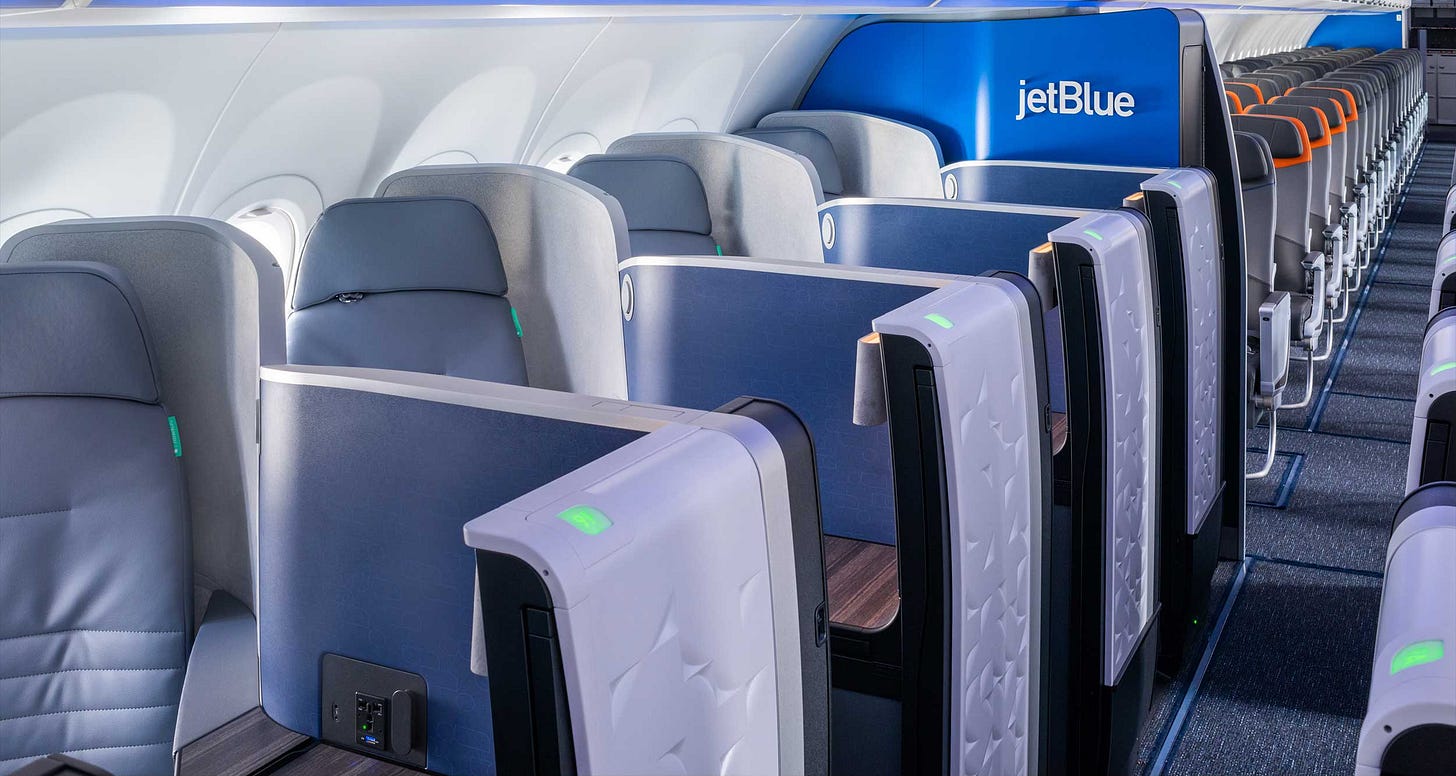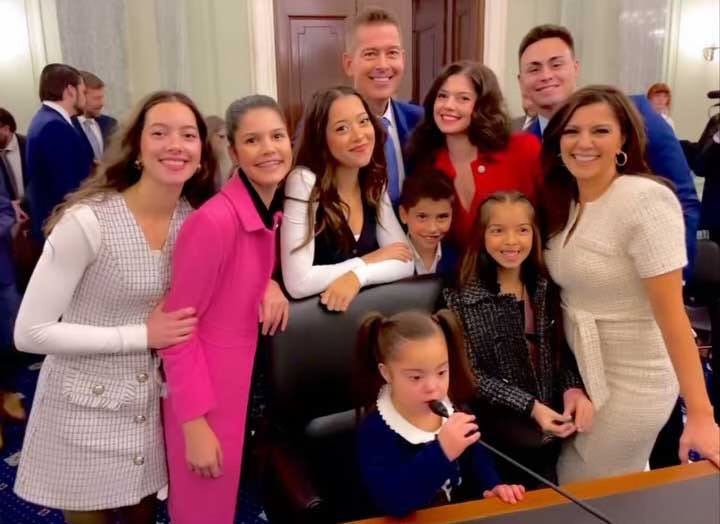Written by John Morris, WheelchairTravel.org, January 22, 2025
Secretary Pete is out, and former Congressman Sean Duffy is (nearly) in — here’s what that means for accessible travel advocacy.
At approximately 12:00 p.m. Monday, Donald Trump was sworn in as the 47th President of the United States of America. Over the coming days, the new president’s administration will take shape as the United States Senate fulfills its responsibility to provide “advice and consent” on Trump’s nominees to the cabinet. In this newsletter, I will assess what that means — who those nominees are, and what we can expect over the next four years in accessible travel policy.
Politics isn’t the problem and the “Shadow Precedent”
We can all agree that, after any closely contested election, it is natural for those on the side of defeat to expect the worst. The November 2024 election was indeed closely contested, and the nearly 50/50 split among the electorate means that while half of Americans are encouraged by the result, the other half are not.

With respect to the topic that concerns this blog — equal access for disabled people in travel and tourism — the historical record does not suggest that the new administration will bring about any major negative changes to accessible travel policy. The persons set to lead the Departments of Justice and Transportation, Pam Bondi and Sean Duffy, respectively, have been neither transformative allies nor enemies of the accessible travel agenda.
Governments in the United States at the federal, state and local levels have a long history of failing to stand up for equal access — enforcement of civil rights laws like the Americans with Disabilities Act and the Air Carrier Access Act have been dismal, and nearly all disabled Americans agree that elected leaders must do better.
But, here’s the thing — the problem at the U.S. Department of Transportation isn’t the Secretary, who is a political appointee by the president, but rather the career service employees who maintain a stranglehold on departmental policies, resisting efforts to bring about the changes that disabled travelers need most.
One of the most troubling examples of career employees run amok relates to the “Equivalent Alternative Determinations” (EADs) that the Department so frequently issues. EADs are waivers of provisions of the Air Carrier Access Act — when granted, they permit airlines to ignore critical civil rights protections that disabled travelers depend on. When DOT employees rule that airlines can violate ACAA regulations, disabled travelers are harmed and left powerless — they have no right to challenge the Department’s determinations, and many of the application materials are sealed, making them inaccessible to the public and journalists though Freedom of Information Act requests. EADs collectively form what I call a “shadow precedent” — the waivers amount to abrogation of civil rights law and once issued, airlines line up, one after another, to take advantage of the same.

I first addressed the DOT’s problematic approach to EADs in my article, Barrier-FULL JetBlue Business Class Seat is a Choking Hazard for Wheelchair Users. The seat is, in my view, completely inaccessible and poses the risk of serious injury (or death?) for non-ambulatory passengers. The design omits a key requirement of the ACAA, 14 CFR 382.61, which requires 50% of seats to have a moveable aisle armrest. The Department has defined a moveable aisle armrest as “an armrest on an aisle seat that completely moves or folds out of the way while the seatback remains in an upright position to permit a passenger with a mobility impairment to safely make an unobstructed transfer from an aisle wheelchair to his or her aircraft seat.” It’s literally understood as a safety feature, but JetBlue’s “Mint Suite” doesn’t have that, and it is because the Department granted the airline an EAD — effectively, a license to violate the civil rights of disabled people.
Other airlines that have applied for similar waivers include Finnair (read my review of the Nordic carrier’s disastrous “Air Lounge” seat), Qatar Airways (their QSuite is one of the least accessible premium seats) and — how did you guess — notorious disability rights violator American Airlines (you can read their waiver application here). Honestly, it’s no surprise that the airline guilty of at least $50 million in civil rights offenses has asked for permission to make disabled passengers’ experience worse.
Assessing Secretary Pete Buttigieg’s Tenure at the Department of Transportation
Former Secretary Pete Buttigieg was welcomed to the Department of Transportation in 2021 with great excitement. He was expected to be a transformative figure. Secretary Pete said many of the right things, including this quote that gained a lot of attention in the disability community:
“No other form of transportation — trains, buses, boats — requires you to give up your mobility device when you board. The same ought to be true of airlines. So, in the months and years ahead, we plan to record a new rule that will allow passengers to stay in their wheelchairs when they fly. We know this won’t happen overnight, but it is a goal we have to work to fulfill.”
— Pete Buttigieg, U.S. Secretary of Transportation
With his service at the DOT now complete, and a new leader set to take the reins at, it is worth asking — How did he do? In the closing days of the Secretary’s tenure, the Department distributed a press release outlining his accomplishments, portions of which I have reproduced here:
All Americans need access to transportation in order to thrive, whether that is a personal vehicle, public transit, or the ability to walk, bike, or roll. But good transportation – and the economic opportunities that come with it – have not always been equitably available to all Americans. Secretary Buttigieg set out to change that trajectory to ensure all modes of transportation are affordable, accessible, and available to everyone who might count on them.
- Improving Air Travel Accessibility: USDOT finalized a rule establishing new protections to ensure that airline passengers who use wheelchairs can travel safely and with dignity. The rule sets new standards for prompt, safe, and dignified assistance; mandates enhanced training for airline employees and contractors who physically assist passengers with disabilities and handle passengers’ wheelchairs; and specifies actions that airlines must take to protect passengers when a wheelchair is damaged during transport. The Department also finalized a rule on accessible lavatories on aircraft, requiring airlines to make lavatories on new single-aisle aircraft large enough to permit a passenger with a disability and an attendant to approach, enter, and maneuver within as necessary to use the aircraft lavatory.
- Ensuring Accessible Transit: USDOT invested more than $1 billion through the All Stations Accessibility Program to make it easier for people with disabilities and mobility limitations to access some of the nation’s oldest and busiest rail transit systems through essential upgrades, such as the installation of elevators and platform improvements. USDOT also proposed new rules to ensure that transit stops meet Public Right-of-Way Accessibility Guidelines.
- Promoting Affordable Housing Near Transit Stations: USDOT announced nearly $50 million in innovative finance grants in support of transit-oriented development and downtown redevelopment initiatives to help improve housing and transportation affordability. USDOT also announced $28 million in FTA grants to support equitable transit-oriented development.
- Reconnecting Communities Program: The Reconnecting Communities Pilot and Neighborhood Access and Equity discretionary grant programs – designed to reconnect communities divided by transportation infrastructure – received $1 billion in funding from the Bipartisan Infrastructure Law and an additional $3 billion from the Inflation Reduction Act. Secretary Buttigieg announced 256 federal grants for transformative, community-led projects, including capping interstates with parks, adding transit routes, and filling in sunken highways to reclaim the land for housing.
For the purposes of this newsletter, it is worth focusing on the Secretary’s stated accomplishments in the area of wheelchair accessible air travel. Among the Department’s actions during his tenure included:
- The Department established a new rule that mandates airlines (a) provide “safe and dignified” assistance to disabled passengers; (b) publish aircraft cargo hold dimensions, (c) implement enhanced training for airline personnel and contractors; (d) adhere to a new set of clear standards in the event of wheelchair damage or loss; and (e) reimburse the fare difference for passengers unable to take their preferred flights because a mobility device will not fit in the cargo hold, among other provisions.
- The Department fined American Airlines $50 million — the largest such fine in American history — for serious violations of the civil rights laws protecting disabled passengers between 2019 and 2023.
- Secretary Buttigieg published a document entitled the “Airline Passengers with Disabilities Bill of Rights,” which describes the terms of the Air Carrier Access Act.
- The Department established a final rule on “accessible” lavatories on single-aisle aircraft, requiring airlines to make lavatories on those aircraft types large enough for disabled passengers and an attendant to approach, enter, and maneuver within the lavatory.
- The USDOT claims to have “laid the groundwork for airlines to modify their cabins to allow passengers to remain in their wheelchairs onboard an aircraft and for a future rulemaking that would address the issue across the industry.”
The DOT’s numerous actions over the past four years are best described as “restrained” — although some new regulations were an improvement over the status quo, I did not consider any of them to be “home run” victories that greatly expanded accessibility. The highly touted “Airline Passengers with Disabilities Bill of Rights” established no new rights, and was simply a document that explained the Air Carrier Access Act in layman’s terms — a worthy endeavor, but certainly not groundbreaking (an ACAA explainer has appeared on this website for nearly a decade).
A rule that ascribes a “rebuttable presumption” of guilt to airlines that damage wheelchairs and mobility devices is a wonderful step forward in practice, but the DOT does not have a history of holding airlines accountable for disability rights violations. The historic fine levied against American Airlines is notable, but it occurred in the closing months of Secretary Buttigieg’s tenure — civil rights laws are not worth the paper they are printed on unless they are aggressively and religiously enforced. One big fine appears more like a PR play than a change in departmental practice (which is largely driven by career employees, who have not prioritized accessibility).
The so-called “accessible lavatories” rule does not deliver truly accessible bathrooms, and the meat of the rule will not impact new aircraft deliveries for more than a decade. Because airframes are utilized for 20 to 30 years on average, the majority of aircraft may not feature the larger lavatories for up to four decades! Even though it appears wheelchair securement spaces on airplanes (see this prototype and this one) may be just around the corner, the DOT made no provision for wheelchair users to access the lavatory in their own wheelchair. The rule was destined to be, as I reported, “outdated before it goes into effect.”
Subscribed
Though the DOT claims to have “laid the groundwork” for a wheelchair space on airplanes, the necessary innovation was brought about by advocates (meet Chris Wood and Michele Erwin) and companies like Delta Flight Products and Collins Aerospace. The FAA’s approval process for the Delta solution has been slow. Secretary Pete’s comments on the importance of advancing the development of a wheelchair securement solution and ultimately mandating it by rule set a bar that I am hopeful the incoming administration will strive to reach.
So, what is Secretary Buttigieg’s legacy? In my view, the affable secretary will be remembered as an excellent communicator, one who said the right things about the importance of equal access in air travel. His list of accomplishments at the DOT is longer than many of his predecessors, and the actions of his Department made the disability community believe in a brighter future.
It is also important to recognize that the accessibility policies promulgated during Buttigieg’s term were “safe” rather than barrier-breaking. He did not excel at corralling career service personnel, who resisted the public’s calls for consequential action and undermined disabled travelers’ civil rights through the opaque EAD docket. Perhaps, if given more time, Secretary Pete could have cleaned house and reclaimed power from the bureaucracy. While he left the Department with so much work still to be done, I am grateful for his service.
What can we expect from incoming DOT Secretary Sean Duffy?
I do not have a crystal ball, and make no guarantees that my read of President Trump’s likely-to-be-confirmed nominee, former Congressman Sean Duffy, will be the right one. But I did review his testimony before the U.S. Senate Committee on Commerce, Science, and Transportation, which you can watch here:
Mr. Duffy received supportive introductions to the committee by the two United States senators from his native State of Wisconsin — Senator Ron Johnson, a Republican, and Senator Tammy Baldwin, a Democrat. Senator Johnson remarked on Duffy’s character, noting that in 2019 he resigned his congressional seat to care for his newborn daughter, Valentina, who has Down Syndrome.

Though Mr. Duffy’s close connection to disability is no guarantee that he will champion the accessibility regulations needed by the community, I expect that he will bring to the Department an open mind. In response to Senator Baldwin’s question about how he would improve accessibility in air travel, Duffy stated that “making sure that people who have disabilities have access to all modes of transportation…is critically important.” That’s the appropriate response and I was happy to hear it.
ACCESSIBILITY IS MY TOP PRIORITY
Please consider supporting my work to advocate for common sense policies to improve accessibility in the travel industry by upgrading to a paid newsletter subscription or making a one-time or recurring gift via PayPal.
Questions about accessibility for disabled travelers also came from Senator Tammy Duckworth (D-Illinois), who is a retired Army National Guard lieutenant colonel and bilateral above knee amputee. She is a member of our community and champions improvements in accessibility. Duffy recommitted to making the transportation accessible to all, and to working with Senator Duckworth to achieve that end.
The nomination hearing was not a controversial one — committee members approached the hearing with an interest in bipartisanship, understanding that Mr. Duffy will be the next Secretary of Transportation. Senators stated their priorities and expectations, which included aviation safety, investment in transportation, and accessibility in air travel and public transit, among other concerns. Congress will play a large role in setting the agenda as it always does, but advocates will factor in heavily as well. It is important that disabled people continue to advocate for the prioritization of equal access everywhere, for greater transparency, and for the dismantling of the “shadow docket.”
I look forward to continuing to engage with the Department of Transportation and hope that Mr. Duffy will serve the American people well — including and especially disabled people — as the next Secretary of Transportation. Coverage of important DOT actions relating to accessibility will always be covered in this newsletter.
